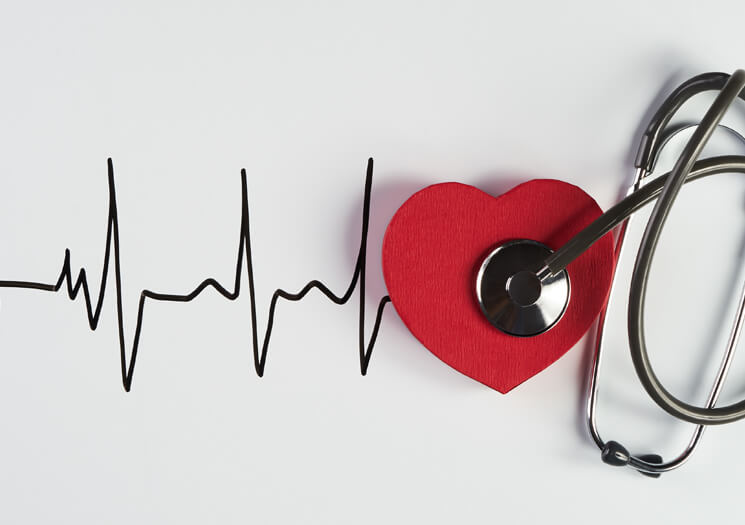Should I Worry About Heart Palpitations?
Introduction
Heart palpitations can be a concerning experience, causing many individuals to question their overall heart health. In this article, we’ll delve into the world of heart palpitations, exploring their causes, triggers, and when to seek medical attention. Additionally, we’ll discuss lifestyle changes, medical conditions associated with palpitations, diagnostic tests, treatment options, and long-term management strategies. Understanding heart palpitations is crucial for making informed decisions about your cardiovascular health.
Understanding Heart Palpitations
Definition and Causes
Heart palpitations are sensations of rapid, strong, or irregular heartbeats. They can feel like your heart is fluttering, pounding, or even skipping a beat. These sensations are often benign and can result from various factors, including heightened emotions, physical exertion, or stimulant intake. However, they can also be indicative of underlying medical conditions, which we’ll explore further in this article.
When to Seek Medical Attention
Identifying Normal vs. Abnormal Palpitations
It’s essential to differentiate between normal and abnormal palpitations. Normal palpitations may occur in response to factors like exercise or excitement and typically subside on their own. Abnormal palpitations, on the other hand, may be accompanied by symptoms such as dizziness, chest pain, or shortness of breath. If you experience abnormal palpitations, seeking prompt medical attention is advised.
Common Triggers for Heart Palpitations
Stress and Anxiety
Stress and anxiety can significantly influence heart rate and rhythm. The body’s natural response to stress is the release of adrenaline, which can lead to palpitations. Learning effective stress-management techniques can be instrumental in reducing palpitation frequency.
Caffeine and Stimulants
Caffeine, found in coffee, tea, and some energy drinks, is a known stimulant that can lead to increased heart rate and palpitations in susceptible individuals. Moderation in caffeine consumption is key for those prone to palpitations.
Physical Activity
Intense physical activity or sudden exertion can lead to a temporary spike in heart rate. While this is generally normal, individuals with underlying cardiac conditions should approach exercise with caution and under medical guidance.
Lifestyle Changes for Managing Palpitations
Diet Modifications
Making conscious choices about your diet can positively impact heart health. Opting for a balanced diet rich in fruits, vegetables, and whole grains while minimizing processed foods and excessive sugar and sodium intake can help regulate heart rhythm.
Stress-Reduction Techniques
Incorporating relaxation techniques such as deep breathing, meditation, or yoga into your daily routine can alleviate stress levels and subsequently reduce the occurrence of palpitations.
Exercise and Physical Well-being
Engaging in regular, moderate exercise promotes overall cardiovascular health. Consult with a healthcare provider to establish a suitable exercise regimen tailored to your individual needs and limitations.
Medical Conditions Associated with Palpitations
Arrhythmias
Arrhythmias are irregular heart rhythms that can lead to palpitations. They can range from harmless to serious and may require medical intervention. Identifying and managing arrhythmias is crucial for maintaining heart health.
Thyroid Disorders
Thyroid imbalances, both hyperthyroidism and hypothyroidism, can contribute to palpitations. Managing thyroid function through medication and regular monitoring is essential for minimizing palpitation episodes.
Cardiac Conditions
Certain heart conditions, such as mitral valve prolapse or congestive heart failure, can lead to palpitations. Understanding and managing these underlying conditions is vital for overall heart health.
Diagnostic Tests and Medical Evaluation
Electrocardiogram (ECG)
An ECG is a non-invasive test that records the electrical activity of the heart over a period of time. It provides valuable information about heart rate and rhythm, aiding in the diagnosis of palpitations.
Holter Monitor
For palpitations that occur intermittently, a Holter monitor is worn for an extended period to continuously record heart activity. This can capture irregularities that may not be evident during a standard ECG.
Blood Tests
Blood tests can reveal underlying conditions that may be contributing to palpitations, such as thyroid imbalances or electrolyte abnormalities.
Treatment Options
Medications
In some cases, medications may be prescribed to regulate heart rhythm and reduce palpitations. These may include beta-blockers, calcium channel blockers, or anti-arrhythmic drugs.
Lifestyle Modifications
Continuing to implement healthy lifestyle changes, such as stress reduction and regular exercise, can complement medical treatment and further reduce palpitation frequency.
Interventional Procedures
In severe cases, interventional procedures like catheter ablation may be recommended to correct abnormal electrical pathways in the heart.
Prevention and Long-term Management
Prevention of palpitations involves a multi-faceted approach, including stress management, regular exercise, and adherence to any prescribed medications. Long-term management requires consistent monitoring and adjustment of lifestyle factors.
The Importance of Regular Check-ups
Regular check-ups with a healthcare provider are crucial for monitoring heart health, especially if you experience palpitations. They can conduct necessary tests and provide guidance on managing any underlying conditions.
Conclusion
Experiencing heart palpitations can be alarming, but in many cases, they are benign and manageable. By understanding the triggers, seeking appropriate medical attention when necessary, and implementing lifestyle changes, individuals can take proactive steps towards maintaining a healthy heart.
FAQs
- Can caffeine cause heart palpitations?
- Yes, excessive caffeine intake can lead to increased heart rate and palpitations in some individuals.
- What role does stress play in heart palpitations?
- Stress triggers the release of adrenaline, which can lead to palpitations. Learning effective stress-management techniques can help reduce their occurrence.
- Are heart palpitations common during exercise?
- It’s not uncommon for heart rate to increase during exercise. However, if palpitations are severe or accompanied by other concerning symptoms, seek medical attention.
